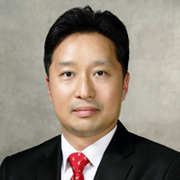Executive Summary1
South Korea and the United States share a long history of bilateral cooperation, forming an important strategic and economic partnership in the Asia Pacific region. South Korea is a significant economic and military force in the region, which draws attention to how the South Korean government, companies, and organizations engage in U.S. Indo-Pacific initiatives, particularly on those that involve China.2 The election of Yoon Suk-yeol as the next South Korean president signals an increase in cooperation with the U.S. on issues of mutual security and economic interests, to include addressing North Korea’s nuclear weapons ambitions, Iran’s nuclear program, China’s growth ambitions and human rights policies, Russia’s invasion of Ukraine and foreign interference, and more broadly the Indo-Pacific’s security and economic stability.
South Korea’s trade relations with jurisdictions that are subject to the U.S. and international sanctions and trade restrictions, such as Russia, Iran, and China, increase the significance of U.S. and South Korean cooperation on financial crime and trade controls policies. Exposure to sanctions risk, gaps in anti-money laundering controls and trade in sensitive or restricted technologies raises the need for South Korean financial institutions and multinationals to enhance their capabilities to identify risk and implement controls.
For South Korean companies, staying current on trends and expectations — with respect to global standards, industry best practices, and the U.S. regulatory environment — can be helpful in protecting against enforcement risk and reputational harm. Working towards better alignment with the U.S. and other partners on these regulatory and enforcement matters can also better assist the newly elected Yoon administration advance South Korea’s standing as a well regulated financial and commercial center.”3
This report will provide an overview of U.N. and U.S. sanctions programs relating to China, North Korea, Iran and Russia, and highlight areas of U.S.-South Korea cooperation on sanctions implementation. The report will also discuss U.S. regulations surrounding military end users, and present case studies that highlight how South Korean companies can be exposed to commercial activity that supports military entities in China and Russia. Section four of this report discusses supply chain risk, focusing on U.S. and South Korean regulation on technologies that each country has deemed essential to their respective national security considerations, and the issue of Xinjiang forced labor. This section then introduces case studies that demonstrate possible exposure to the reexport of sensitive technology, and the risk of exposure to forced labor in the global supply chain. Section five discusses strengthening sanctions compliance risk management capabilities.
- 1. This report is the result of three-month collaboration in research and writing by a team of experts from both Kharon and the Asan Institute for Policy Studies. While experts from both Kharon and Asan equally contributed to the contents in the body of the report, the case analyses were conducted exclusively by Kharon, and the policy recommendations were made exclusively by experts from the Asan Institute for Policy Studies. The policy recommendations do not necessarily reflect the Asan institute’s position.
- 2. “U.S.-South Korea Relations,” Congressional Research Service, last updated February 24, 2022.
- 3. “Yoon Suk Yeol’s Foreign and Security Policy: Confident Diplomacy and Strong National Security (Unofficial Draft Translation),” NK News, March 14, 2022.

 Facebook
Facebook Twitter
Twitter
